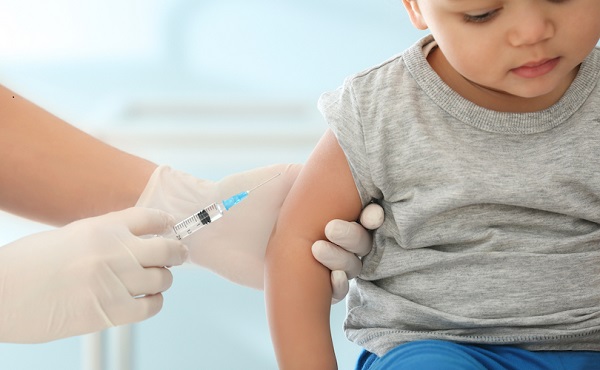Focal Point
White House Announces Tylenol–Autism Link, Opens Door to Vaccines

The pathway to developmental regression begins with vaccines, not acetaminophen.
In a MAJOR development, both Trump and RFK Jr. also acknowledged the possibility that vaccines contribute to autism. As Trump said:
“They pump so much stuff into those beautiful little babies, it’s a disgrace.”
Although most of the spotlight fell on Tylenol, the evidence is undeniable: acetaminophen is NOT the root cause. At most, it weakens defenses and heightens vulnerability. The true trigger — then and now — is VACCINES.
The Evidence
Prenatal Exposure
The most comprehensive review to date, by Prada et al, evaluated acetaminophen use during pregnancy:
- 27 studies found a positive association with neurodevelopmental disorders (ASD/ADHD).
- 9 studies showed no link.
- 4 studies suggested protective effects.
Autism was never diagnosed at birth. In every study, it emerged years later—typically ages 2–8, the very same window when children are loaded with a battery vaccines. None of these papers accounted for vaccination as a confounder. This shows prenatal Tylenol exposure may predispose children, but the neurological injuries are detected during the vaccine years.
Postnatal Exposure
Schultz et al (2008): Children given Tylenol after MMR vaccination were about six times more likely to later be diagnosed with autism. In those who regressed (lost previously acquired skills), the risk was nearly fourfold, and in those with clear post-vaccine complications, the risk spiked to over eightfold. By contrast, ibuprofen showed no association.
Yengst et al (2025): In a Medicaid cohort of 674,000+ children, repeated episodes of fever, ear infections, or other “Tylenol-triggering” illnesses were linked to a 2½-fold higher risk of autism. Among girls with multiple fevers, the risk climbed to nearly fourfold.
Taken together, these studies reveal a consistent pattern: autism risk intensifies in the post-vaccine period, when febrile reactions are most common, and acetaminophen use in this context may amplify the likelihood of developmental regression.
Acetaminophen depletes glutathione, the body’s master antioxidant/detox system, exactly when the brain faces inflammatory/oxidative stress (e.g., fever, seizure, immune activation). Some pediatric practices have even recommended Tylenol before vaccine visits “just in case,” meaning kids arrive with defenses already depleted as the shots provoke fever/immune activation—priming them for worse outcomes.
Confounding by Indication
Tylenol is rarely given at random. It is usually given because a child has spiked a fever or suffered a seizure — often after vaccination. This creates what’s known as confounding by indication: the very reason for giving Tylenol (a serious post-vaccine reaction) is already linked to elevated risk.
Across studies, a clear pattern emerges:
- Diagnoses cluster in early childhood (ages 2–8), the most intensive vaccine years.
- Greater fever/illness burden — situations when Tylenol is typically used — corresponds to higher odds of autism.
- Regression subgroups show the largest risks following vaccination (Schultz).
Together, the evidence points to vaccination as the trigger, with Tylenol lowering defenses by depleting glutathione and thereby magnifying the neurologic damage.
Timeline Reality
- Tylenol was released in the 1950s. Autism rates stayed flat.
- The surge began in the late 1980s and 1990s, exactly when the childhood vaccine schedule doubled and tripled.
If Tylenol alone were the driver, autism would have spiked in the 1950s. It didn’t.
The Missing Evidence
- There are no case reports of regression to autism from acetaminophen alone.
- By contrast, there are thousands of parental reports and multiple peer-reviewed studies documenting developmental regression after vaccination.
Nonetheless, today’s announcement has opened the door for an official investigation into the glaring link between childhood vaccination and autism.
At the McCullough Foundation, we are finalizing one of the most comprehensive analyses ever conducted on the causes of autism — untainted by fraud, bias, and corruption. You can rest assured that all risk factors will be included, INCLUDING VACCINES.
No stone will be left unturned — and no protected interest will be spared.
Epidemiologist and Foundation Administrator, McCullough Foundation
Support our mission: mcculloughfnd.org
Please consider following both the McCullough Foundation and my personal account on X (formerly Twitter) for further content.
FOCAL POINTS (Courageous Discourse) is a reader-supported publication.
To receive new posts and support my work, consider becoming a free or paid subscriber.
-

 Business2 days ago
Business2 days agoCarney’s ‘major projects’ list no cause for celebration
-

 Business2 days ago
Business2 days agoGlobal elites insisting on digital currency to phase out cash
-

 Business2 days ago
Business2 days agoRed tape is killing Canadian housing affordability
-

 Health2 days ago
Health2 days agoMAiD should not be a response to depression
-

 Artificial Intelligence2 days ago
Artificial Intelligence2 days agoUK Police Chief Hails Facial Recognition, Outlines Drone and AI Policing Plans
-

 Business1 day ago
Business1 day agoOttawa’s so-called ‘Clean Fuel Standards’ cause more harm than good
-

 Business2 days ago
Business2 days agoThe Truth Is Buried Under Sechelt’s Unproven Graves
-

 International2 days ago
International2 days agoFrance records more deaths than births for the first time in 80 years













